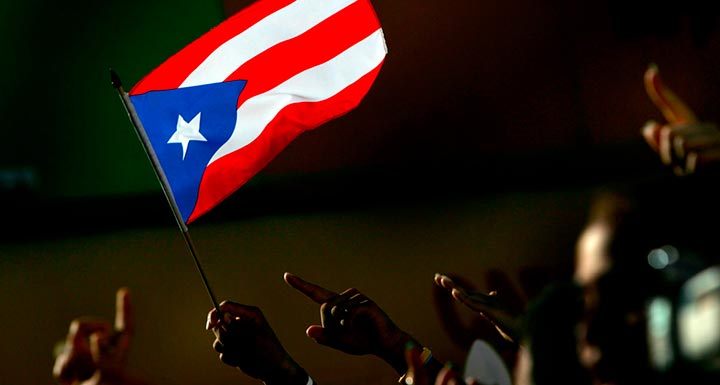
How a surge in Puerto Rican voters is changing Florida politics
The road to political victory in Florida is not just a metaphor, it’s a place: Interstate 4, the busy highway that cuts across the vote-heavy heart of the state from Tampa to Daytona Beach.
And the I-4 corridor, as it’s called, now runs through a swing-vote region undergoing significant demographic change.
Puerto Ricans have been migrating by the thousands to the area — part of the largest exodus from their island territory to the mainland since World War II. They currently make up about 10 percent of Central Florida’s population, and their numbers continue to grow.
A Pew Research Center report released in August shows that Orange County alone was home to nearly 150,000 Puerto Ricans in 2010, up from 86,583 a decade earlier, out of a total population of 1.4 million. The surge pushed it to No. 3 in a ranking of U.S. counties according to Puerto Rican population; only Brooklyn and the Bronx ranked higher.
“The I-4 corridor is the key to winning Florida: Win the area and you win the election,” says Susan MacManus, a political science professor at the University of South Florida in Tampa, pointing out that roughly 45 percent of the state’s registered voters live in the Tampa and Orlando media markets.
Yet some Floridians, including politicians, are still trying to figure out how to talk about the newcomers. Because many Puerto Ricans work at Disney World, Floridians dub them “Disney Ricans” or “Mickey Ricans,” labels they don’t find amusing.
And it didn’t go unnoticed when the chairman of the Orange County Republican Executive Committee, Lew Oliver, blamed the “Puerto Rican influx” for a decline in registered Republicans and called the island territory “semisocialist” and a “basket case.” Under fire from various groups, Oliver issued an apology, saying his words were taken out of context.
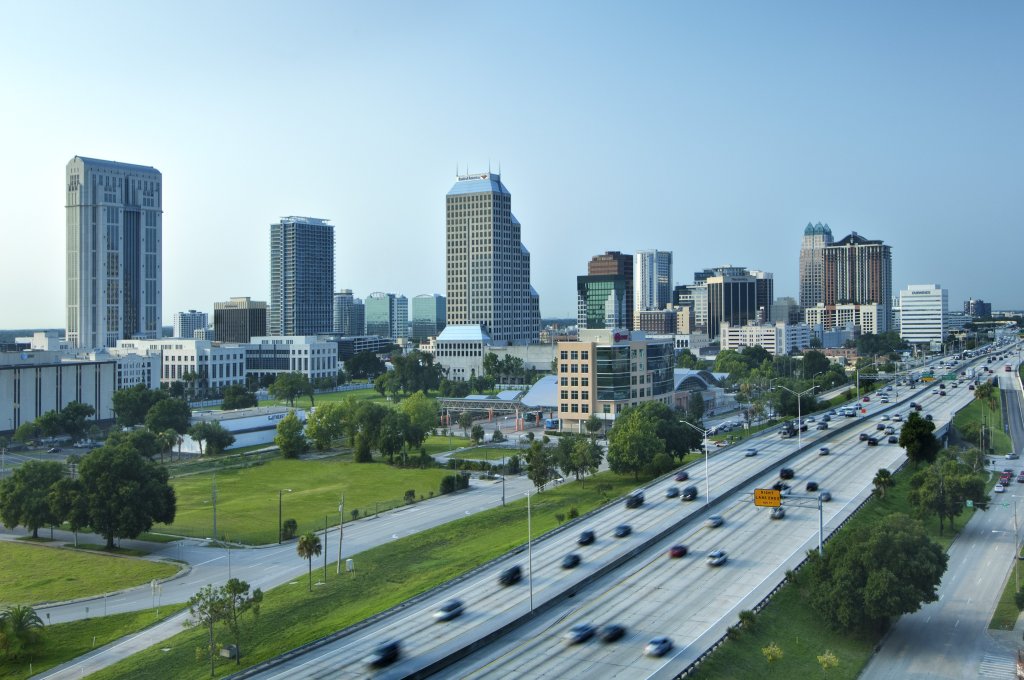
The episode highlights the struggle the GOP faces in Central Florida, where more than 300,000 Puerto Ricans are concentrated in a region of 3 million to 4 million people. Though Republicans can still rely on the Cuban vote in South Florida, they’re falling behind in the vital I-4 corridor.
The change is part of a broader shift in the Hispanic politics of the Sunshine State. Historically, Cubans in the Miami area have been the majority of the state’s Hispanics and have leaned Republican. But that dominance is slowly eroding. Younger Cubans are increasingly turning Democratic, and the swelling Puerto Rican population seems to lean Democratic, too.
Puerto Ricans now number nearly 1 million statewide and represent 28 percent of Hispanic registered voters — closing in on a Cuban population of 1.3 million that comprises 32 percent of Hispanic voters.
With their sharply rising numbers, Puerto Rican voters could tip the balance of the Hispanic vote in the country’s third most populous state, a powerhouse battleground with 29 electoral votes.
“No question, the influx of Puerto Ricans has had an impact,” says Steve Schale, a Tallahassee strategist who was a senior adviser in President Barack Obama’s 2012 campaign and is an adviser to Charlie Crist’s gubernatorial campaign. “Until a few years ago, Central Florida was reliably Republican. No more.”
The Puerto Rican vote could make a decisive difference in the upcoming presidential election. It may have already done so in 2012, when Obama won the state by 50.1 percent to Mitt Romney’s 49.13 percent. The difference was only 74,000 votes, the slimmest margin in the country.
Yet the Puerto Rican vote is no sure thing for the Democrats.
“It’s an up-for-grabs community,” says Andres W. Lopez, a Harvard-trained lawyer and national Democratic Party fundraiser who lives in San Juan and commutes often to Florida and Washington.
Puerto Ricans who have lived for long periods in the United States tend to register as Democrats, but those who came from the island recently are likely to be more independent and unaffiliated.
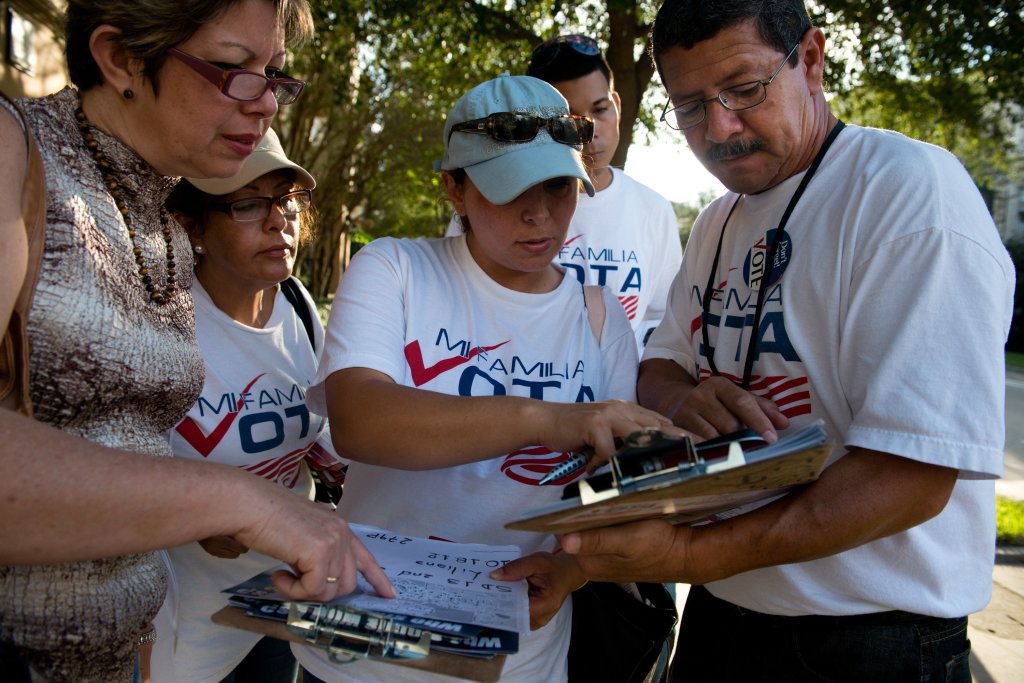
When Republicans and Democrats look at this “up-for-grabs community,” they see something they haven’t seen before. The new wave of Puerto Rican transplants — unlike the rural people who left the island for factory jobs in New York and other Northern cities in the 1950s and 1960s — includes a sizable number of doctors, nurses, teachers, engineers, lawyers, managers and professors. They are upscale and highly educated, and they come to Florida to advance careers and improve lifestyles.
Lopez says many are fleeing the island’s dismal conditions — $70 billion in debt, a 15 percent unemployment rate, escalating crime, teacher layoffs and rundown schools. “The lingering images of this year have been the goodbye notes from people you thought would never leave,” he says.
“Puerto Rican communities in Orlando, Miami and Tampa differ substantially from their counterparts in New York City, Chicago and Philadelphia,” says Jorge Duany, an anthropologist at the Cuban Research Institute at Florida International University. In his research study “Mickey Ricans? The Recent Puerto Rican Diaspora to Florida,” Duany finds that the Puerto Rican migrants of the 21st century have more financial resources and are better educated than their predecessors. They tend to live in middle-class and high-end suburban settings, like Coral Gables and Doral in Miami. “The current Puerto Rican experience in Florida is largely unprecedented,” he says.
The GOP believes these new immigrants could be its kind of people.
“No party has a lock on Hispanics,” says Alex Garcia, the Republican Hispanic Initiatives field director for Florida, speaking specifically about Puerto Ricans. Hispanics favored Republican Jeb Bush in earlier elections, Garcia points out.
In this election cycle, both Republican Gov. Rick Scott and his challenger, Charlie Crist, have Hispanic running mates. Scott recently made his first Spanish-language TV commercial, and the first televised debate between the two candidates — a fractious tit-for-tat on Oct. 10 — was hosted by the Spanish-language Telemundo network.
Both candidates have tried to tailor their message to Hispanic voters. Scott pitches jobs, low taxes and social conservatism (he’s against equal marriage and abortion rights, stands that likely appeal to Hispanic social conservatives). Crist emphasizes issues that, according to surveys, rank high with Puerto Ricans and other Hispanics: health care, Medicaid expansion, increasing the minimum wage, immigration reform.
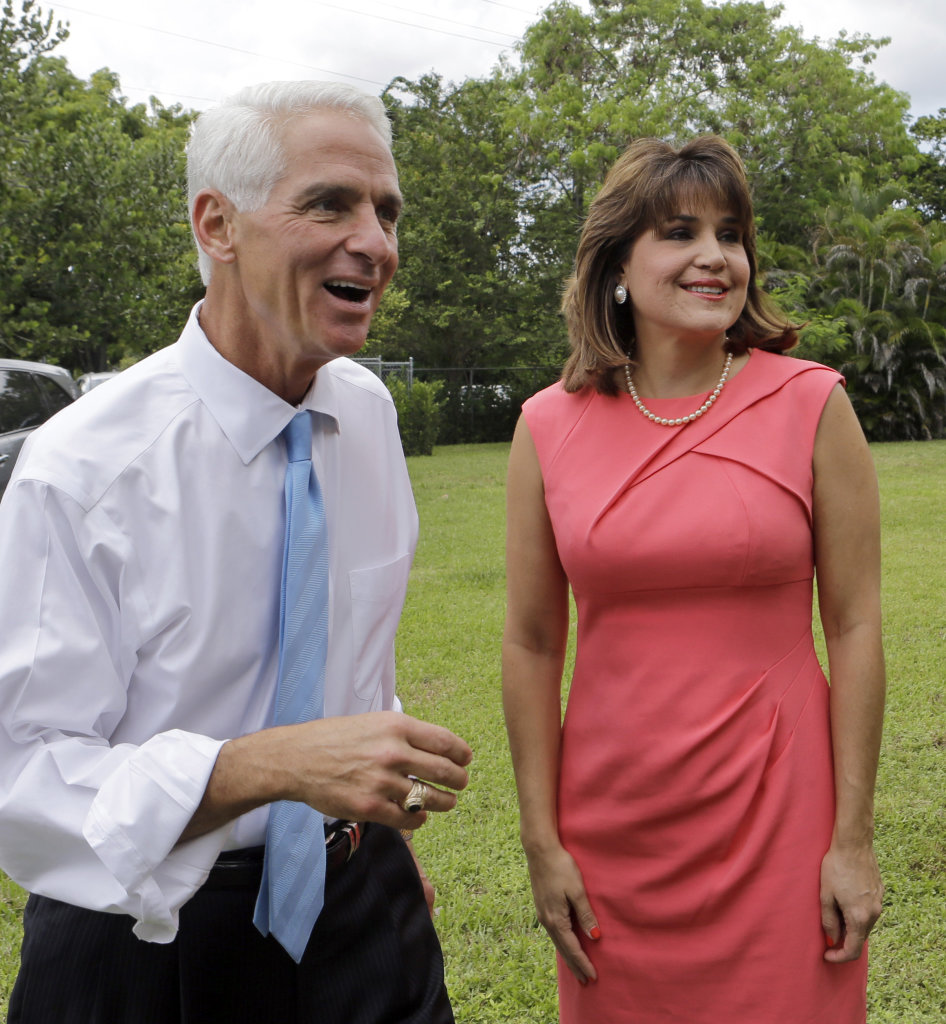
One key issue for Puerto Rican voters of various stripes is statehood for their island territory.
As American citizens, Puerto Ricans can visit or migrate to the mainland freely, but those who reside on the island have no voting representatives in the U.S. Congress and are not allowed to vote in presidential elections. Many have migrated to the mainland partly out of frustration that they have no say in Washington.
A bipartisan group, aiming to capitalize on the new visibility of Puerto Ricans in the Sunshine State, launched a movement this month to pressure candidates and elected officials at local, state and federal levels to support statehood for Puerto Rico.
“If you want Puerto Ricans to come out and vote, react to our call today,” says Alfonso Aguilar, executive director of the Washington-based Latino Partnership.
Until now, however, Florida Democrats and Republicans have no official stance on the controversial issue.
That underscores something else about Puerto Rican political power: Much of it is still unrealized.
“The role of Puerto Ricans has never translated into economic and political might,” says Lopez, the Democratic fundraiser. “Puerto Ricans have a megaphone, yet they are still punching below their weight.”
In 2012, when Puerto Ricans had the opportunity to elect one of their own to the heavily Hispanic 9th Congressional District in Central Florida, they didn’t field a candidate. Alan M. Grayson, a Democratic former 8th District representative, won the vote.
Perhaps more surprisingly, there is only one Puerto Rican state senator in the Republican-led state legislature in Tallahassee: Darren Soto, a low-key lawyer whose grandfather left the Puerto Rican sugarcane fields decades ago to make a new home in New Jersey. A graduate of Rutgers University and George Washington University Law School, Soto was elected to the Florida Senate at age 29.
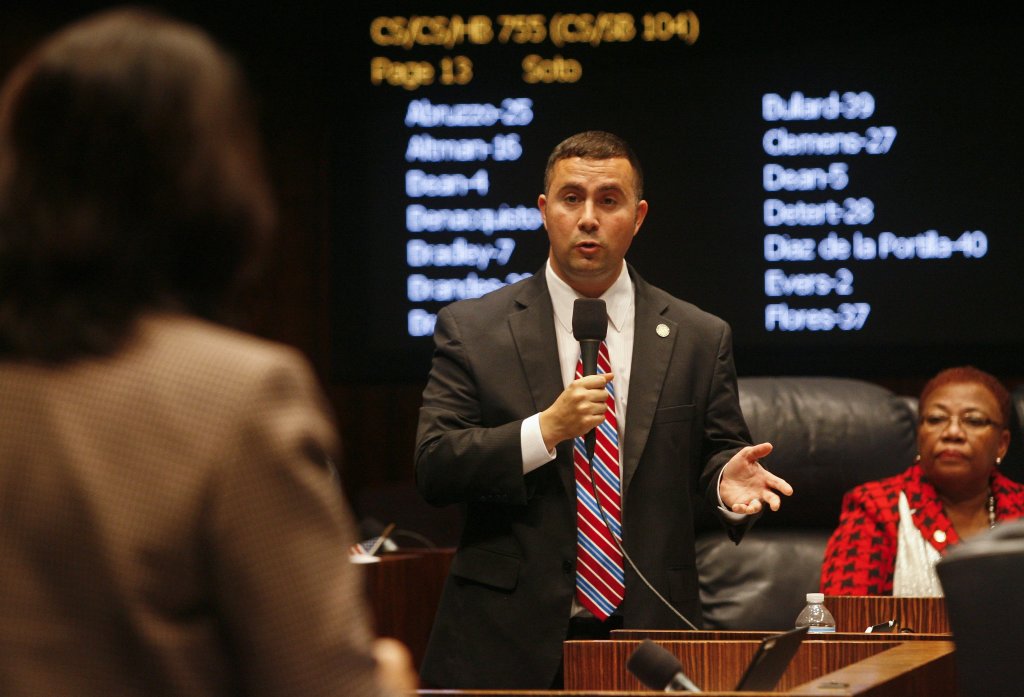
Soto blames low turnout in the midterm elections and primaries to explain why the legislature has such a small number of Puerto Ricans (there are three in the lower house). But Grayson was elected to the U.S. House in 2012, a presidential election year when Puerto Ricans and other Hispanics in Florida went to the polls in strong numbers.
“Our community is still maturing,” Soto says, adding that Puerto Ricans don’t have the financial clout to field many candidates and mount major campaigns.
Duany at Florida International University says that while Puerto Ricans have a higher political profile in Florida than ever before, “it hasn’t happened yet in terms of representation.” They’re divided internally, he says, with a significant minority voting Republican —especially those who enjoy higher socioeconomic status.
That trend is most notable in Miami, where Puerto Ricans tend to disperse and settle in higher-income areas rather than banding together in “Little Puerto Ricos” or similar ethnic-centric communities.
What’s missing in the Puerto Rican community is “a passion point,” says Nelson E. Famadas, a 42-year-old entrepreneur who has spent much of his life moving back and forth from the mainland to the island.
The Harvard-educated Famadas worked at MTV, started a couple of late-night Hispanic-oriented TV shows, moved to San Juan to handle his father’s real-estate business and landed back in Miami four years ago. He has since started up a pair of indie radio music and talk shows.
“We should be considered the ultimate swing vote,” he says. “It’s a huge opportunity for both parties. We cannot be taken for granted.”
Like many other Puerto Ricans in Florida, he zeroes in on the statehood issue. “We have to speak about political equality, about our human rights. … This issue will be solved, but right now we lack leadership to mobilize people.”
“We need to convey the importance of the status issue,” Famadas continues. “The question is: Do Puerto Ricans have the same opportunities to succeed while being second-class citizens in a territory? The United States is the poster child for human rights. … How can this issue be still unresolved? How can this issue not unite Puerto Ricans?”
Famadas hopes that rising Puerto Rican influence will eventually present a challenge to both political parties: “What are you doing about the status of Puerto Rico?” he says. “The answer will have to come. We’re not exercising our influence yet. But we will.”
(From the: Yahoo News)

